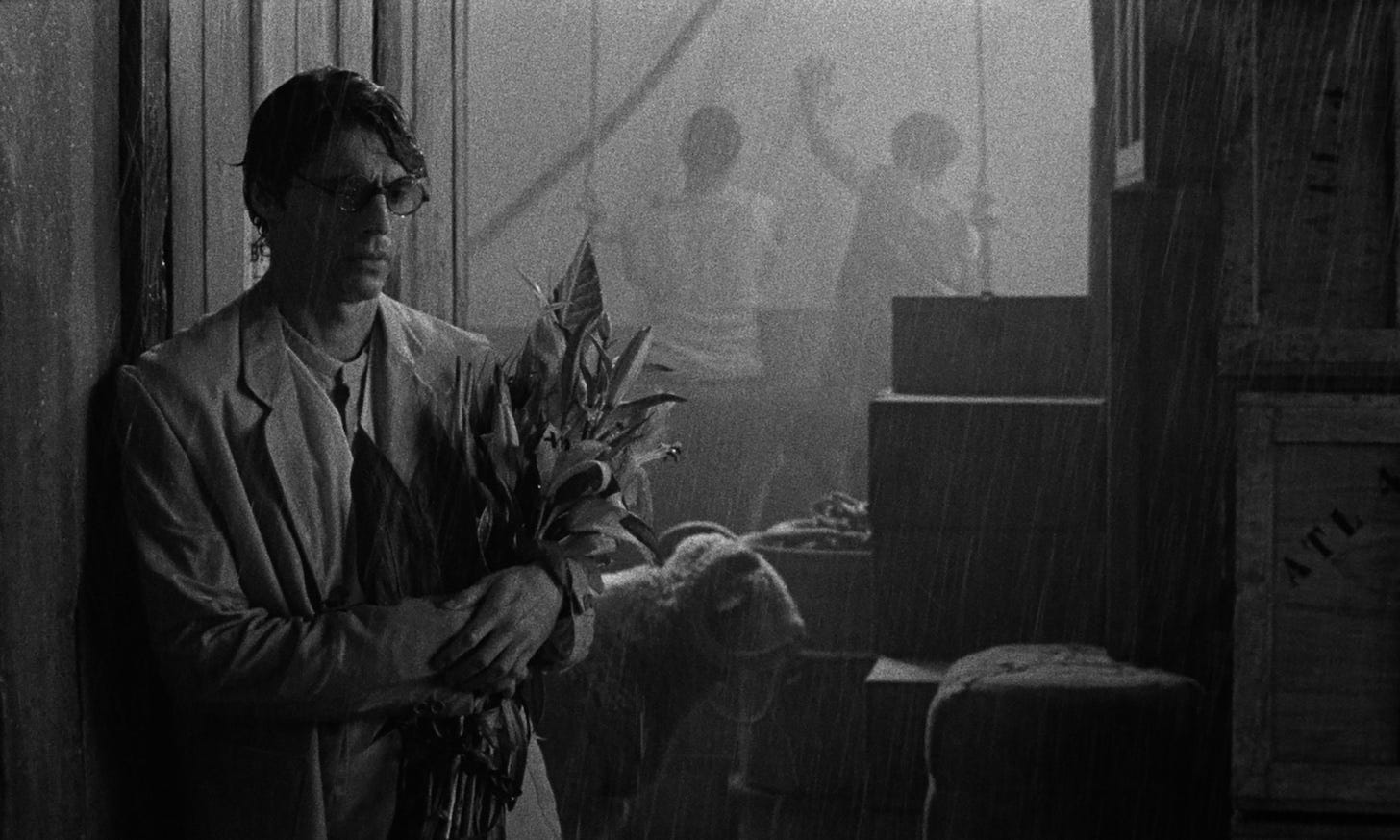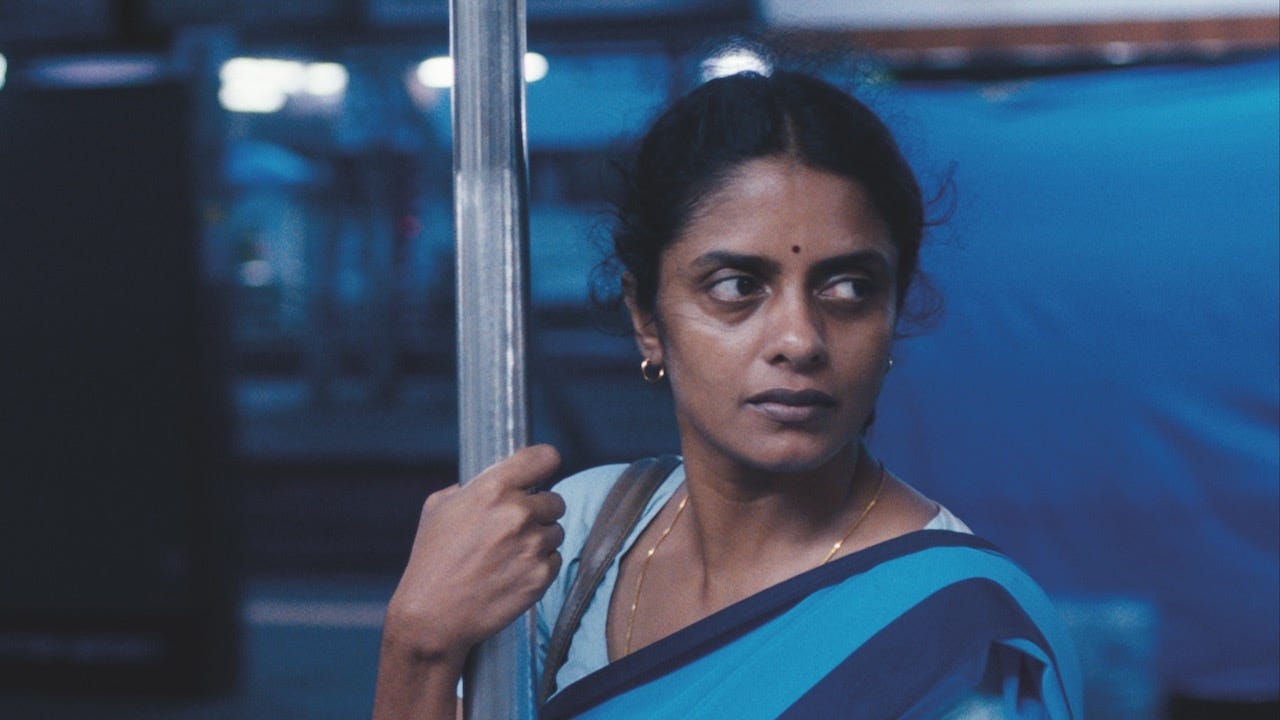London Film Festival Diaries - Day 6
Exotic Asia in all its cinematic splendor from two singular voices.
The London Film Festival (LFF) is running from October 9 - 20, and I am attending. Immediate impressions will be on X if you’d like to give me a follow there.
Grand Tour - dir. Miguel Gomes
Plot in a Nutshell
In 1917 Rangoon, civil servant Edward (Gonçalo Waddington) gets cold feet and abandons his fiancée Molly (Crista Alfaiate) on their wedding day, after being engaged for seven years. His journey quickly morphs into a melancholic tour across Asia. Meanwhile, determined to marry and more amused by his flight than anything, Molly pursues him relentlessly.
Miguel Gomes is back at his very best with a stunning linguistic fairytale about love, tenacity and the power of language. I’d probably place his Tabu (2012) somewhere in the top 25 films of the century so far, and while Grand Tour doesn’t quite reach the same majestic heights, it comes real close.
The use of voice over here is nothing short of genius, and there are more than a few properly transcendental moments that had me internally screaming “This is Cinema!” in total awe. Gomes’ films are unapologetically artificial in their construction, where life imitates art more often than the other way around, but if you put your trust in him, you’ll be swept away by the lights and magic.
How Gomes manages to get us attached to two main characters who are so unsympathetic in so many ways is a tiny miracle of its own, but what truly shines is the direction. It’s no wonder he won Best Director at Cannes. Breathtaking transitions between colour and black and white, the mystical Asian locations, the indifferent animals, characters that make indelible marks with a single scene appearance, the cocktail of melancholy and nostalgia in the air, the literary and poetic nature infused into a picture that can so clearly only live and breathe as art on the screen - so dependent on image, sound and music as it is.
All of this makes Grand Tour a magical tour de force that must be seen on the biggest screen possible.
All We Imagine As Light - dir. Payal Kapadia
Plot in a Nutshell
In Mumbai, Nurse Prabha's (Kani Kusruti) routine is disrupted when she receives an unexpected gift from her estranged husband. Meanwhile, her younger roommate, Anu (Divya Prabha), is in a forbidden romantic relationship with a Muslim boy. Completing the triptych, Prabha’s close friend and colleague Parvathy (Chhaya Kadam) is forced to move out of her home due to an administrative complication.
Payal Kapadia’s All We Imagine As Light won the Grand Prix at the Cannes Film Festival but it may as well have won the Palme for all of the buzz it generated. I haven’t come across a single film critic who hasn’t showered with unabashed praise. Out of the films I’ve seen and am seeing, it’s the only one with a Metacritic score over 90.
Honestly, all of this love adds a lot of anxiety to the anticipation. The question that keeps ringing in my head is always, “can it live up to the insane level of hype?”
It’s good news. Even if Light doesn’t end up being my absolute favorite from the festival (it’s been a very strong one), the film is clearly a stunner in every department. It’s an excellent, quietly heart-breaking portrait of Mumbai, gorgeously shot by Ranabir Das.
The direction from Kapadia is what truly takes the breath away, though. It’s wild how such a young filmmaker can show so much maturity and sophistication - you can spend hours unpacking single shots and singular moments. She’s also a natural when it comes to using the score to heighten the
The three women at the center of the story are played to perfection thanks to a really strong screenplay (it took 8 years for Kapadia to make this film, and you can feel the weight of measured thought in every line of dialogue). The women will no doubt stay with you long after the fantastic final shot of the film. Their three very different predicaments are so dependent on Indian culture and way of life, and yet are woven to resonate so universally.
As a double bill with Grand Tour, these two exotic films put Asian culture front and center of their all-too-human stories, showing us just how singular cinema is as an art form. They make for a wonderful day at the movies.



